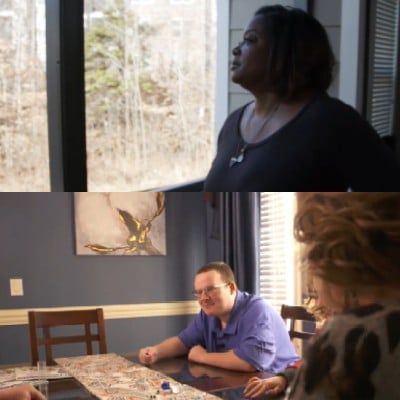 Headache and migraine diseases captured attention nationally throughout February thanks to features on ABC’s Good Morning America, CBS’s Sunday Morning Show, and PBS’s NewsHour. Members of the INvisible Project were highlighted on all three stations.
Headache and migraine diseases captured attention nationally throughout February thanks to features on ABC’s Good Morning America, CBS’s Sunday Morning Show, and PBS’s NewsHour. Members of the INvisible Project were highlighted on all three stations.
On Feb. 25, Dr. William B. Young, a headache specialist at Jefferson Headache Center and contributing writer for the INvisible Project, discussed the reality and severity of millions of Americans who have migraine disease on the Sunday Morning Show.
Watch Dr. Young on Sunday Morning Show segment here
That same week, Good Morning America (GMA) ran three segments on migraine. Jaime Sanders (also known as the Migraine Diva) and Robert Pushis and his family were filmed at their homes to show life with chronic migraine. Producers on the medical team for the show found the INvisible Project: 3rd Edition Migraine Diseases online and reached out to the participants to be featured on the show.
Watch Robert Pushis’s GMA story here
Watch Jaime Sander’s GMA story here
On Feb. 26, PBS’s NewsHour aired an eight-minute segment on migraine disease, exploring the state of treatment and advocacy efforts. PBS sent their camera crew to Washington, D.C., the week prior to film parts of Headache on the Hill. The segment featured cameos from two past INvisible Project participants—Dr. Amaal Starling, a headache specialist at Mayo Clinic; Shirley Kessel, founder of Miles for Migraine, whose three generations of family were featured in the first edition—along with INvisible Project writer, Dr. JoAnna Kempner, a sociologist at Rutgers University was also featured as she discussed the stigma of migraine throughout history.
In fact, a total of 19 INvisible Project participants and contributors were spotted.
Watch the NewsHour segment here
“This has been an amazing month for the migraine and headache disease community,” says Nicole Hemmenway, interim CEO and Director of the INvisible Project. “We are so proud of our past participants for using their voices to speak up, and thrilled we were able to play a small role in helping them get the platform they deserve.”
